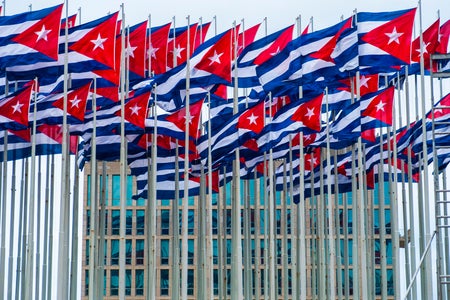Why Do Superstitions Persist among Seemingly Rational People?
Superstitions linger into the modern era, in part, because they may be holdovers from a time when they provided a measure of protection from predators and other mortal dangers
Why Do Superstitions Persist among Seemingly Rational People?
Superstitions linger into the modern era, in part, because they may be holdovers from a time when they provided a measure of protection from predators and other mortal dangers

How Foreign Governments Sway Voters with Online Manipulation
Almost half of the world population heads to elections in 2024. To counter disinformation activities aimed against the voters on social media, we must first understand how they work

People Keep Secrets Because They Overestimate Harsh Judgments
Research suggests that people tend to exaggerate how critically they will be viewed if they reveal negative information about themselves to others
Extrovert or Introvert: Most People Are Actually Ambiverts
Research on personality types in the middle of the extroversion-introversion scale is limited—yet the majority of people fall into this category
How Anti-Trans Efforts Misuse and Distort Science
Three types of misinformation are being used against transgender people: oversimplifying scientific knowledge, fabricating and misinterpreting research and promoting false equivalences
Guilt-Tripping for the Public Good Often Achieves Its Intended Result
The emerging science of laying guilt through public messaging can help safeguard the planet and improve health behaviors
No Spoilers, Please! Why Curiosity Makes Us Patient
Curiosity makes people hungry for knowledge—but not necessarily in a hurry
The Dunning-Kruger Effect Shows that People Don’t Know What They Don’t Know
David Dunning explains how people can avoid overestimating their own knowledge, a psychological bias called the Dunning-Kruger effect
You’ve Heard of Dyslexia, But Why Not Dyscalculia?
The inability to process numeric information, dyscalculia is still poorly understood. Finding therapies may require looking beyond the numbers
Families Find Ways to Protect Their LGBTQ Kids
Hostility toward LGBTQ kids, enshrined in hundreds of new bills, has put families with such children under unprecedented threat, raising risks of suicide and physical attacks
People with ‘Havana Syndrome’ Show No Brain Damage or Medical Illness
The largest and most comprehensive studies of ‘Havana Syndrome’ point to stress or group psychology as likely explanations for most “anomalous health incidents”

A ‘Havana Syndrome’ Investigation in Congress Rests on Politics, Not Science
Lawmakers should look in the mirror if they want answers to who hyped dubious reports of Havana syndrome. Instead they are investigating the spy agencies telling them the truth about the mystery